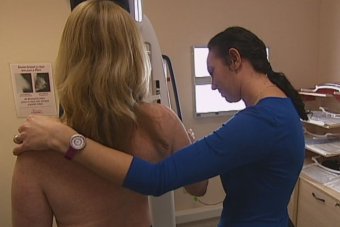
Women using hormone replacement therapy to deal with the difficult symptoms of menopause are twice as likely to develop breast cancer than those who have never used it, new research has shown.
The study by Cancer Council NSW was conducted with more 2,000 menopausal women.
But it has been questioned by one women’s health expert, who has said the sample size was too small and biased.
Professor Karen Canfell, director of cancer research at Cancer Council NSW, said a significant proportion of women choose to use menopausal hormone therapy medications, which are effective at relieving specific symptoms such as hot flushes and night sweats.
“The best estimate we have suggests that around 12 per cent of women aged between 40 to 65 are using menopausal hormone therapy, so that’s about 500,000 women,” she said.
Cancer Council NSW looked at data from over 1,200 women with breast cancer and over 800 women who did not have breast cancer.
“What we found was that in women who are currently using menopausal hormone therapy … the risk of developing invasive breast cancer was doubled,” Professor Canfell said.
She said it was the first time this had been examined on a large-scale in Australia, and that the finding was significant.
“The good news is that in our study, as in international studies, what we found was that the risks are not elevated in women after they stop using menopausal hormone therapy,” Professor Canfell said.
The study indicated that the risk would return to baseline within five years of stopping the hormonal therapies, while international evidence suggested it could take two years or less.
Study refuted as ‘crude’ and ‘simplistic’
Professor Susan Davis, the director of the Women’s Health Research Program at Monash University, said she had concerns about the way the study was conducted.
“It really is a fairly simplistic and, I’d say, crude analysis because of the way the information was collected,” Professor Davis said.
“In this study the observations were from women who had had breast cancer who decided that they wanted to complete a questionnaire.
“And we know that women who choose to participate in this study are different to those who choose not to, and that introduces a bias.”
Professor Davis said Cancer Council NSW’s results varied dramatically from much larger studies.
She said poor-quality research could misinform community and misinform clinical practice.
“So the gold standard of research is a randomised control trial and we have that from the Women’s Health Initiative, that involved 27,000 women,” Professor Davis said.
“The study that we’re discussing now involved 1,200 women who developed breast cancer and 800 control, so it’s very small.”
But Cancer Council NSW’s Professor Canfell defended the study.
“This is the same evidence that’s informed the positions of regulatory agencies worldwide: the FDA, the Medical Healthcare Regulatory Agency in the UK and Australia’s TGA,” she said.
“So we’re not saying anything that’s different from the international evidence.
“It’s just a timely reminder and further evidence, if it were needed, that menopausal hormone therapy has risks as well as benefits.”
The Cancer Council NSW study has been published today in the International Journal of Cancer.
